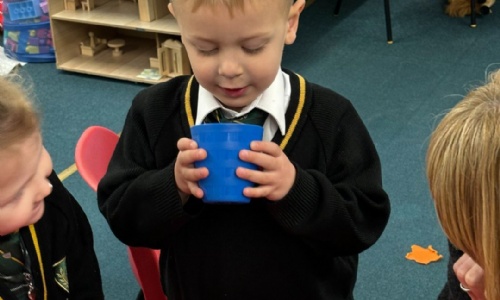
Exploring the Benefits of Sensory Learning for Preschoolers

Discover how sensory learning can unlock a world of growth and development for preschoolers.
Understanding Sensory Learning in Early Childhood
Sensory learning involves engaging a child's senses—sight, sound, touch, taste, and smell—to enhance their understanding of the world around them. For preschoolers, this type of learning is fundamental as it helps them build a solid foundation for critical thinking and problem-solving skills.
By interacting with their environment through sensory experiences, young children begin to develop motor skills, language, and cognitive abilities. Sensory learning is not just about play; it's a crucial element in early childhood education that supports overall development.
How Sensory Play Enhances Cognitive Development
Sensory play is essential for cognitive development in preschoolers. Activities that involve sensory exploration stimulate neural pathways in the brain, which are vital for learning and development. Simple activities like playing with sand, water, or clay can promote fine motor skills and hand-eye coordination.
Moreover, sensory play encourages curiosity and experimentation. It provides children with opportunities to explore cause-and-effect relationships and develop problem-solving skills. For instance, when children mix different colours of paint, they learn about colour theory and the properties of mixing substances.
The Role of Sensory Activities in Social and Emotional Growth
Sensory activities play a significant role in the social and emotional growth of preschoolers. Engaging in group sensory play can help children develop essential social skills such as sharing, taking turns, and cooperating with others.
Additionally, sensory experiences can be soothing and help children manage emotions. Activities like playing with playdough or listening to calming music can reduce stress and anxiety, providing a sense of comfort and security. These activities help children learn to regulate their emotions and develop resilience.
Practical Sensory Learning Activities to Try at Home
There are numerous sensory learning activities that parents can try at home to support their preschooler's development. Simple activities like creating a sensory bin filled with rice, beans, or pasta can provide endless hours of exploration and learning.
Other activities include making homemade playdough, creating a nature scavenger hunt, or setting up a mini water play station. These activities not only engage the senses but also encourage creativity and imagination. Parents can also incorporate sensory activities into daily routines, like involving children in cooking or gardening.
Incorporating Sensory Learning in the Classroom
Incorporating sensory learning in the classroom can enhance the educational experience for preschoolers. Teachers can set up sensory stations with different materials such as sand, water, and textured objects to encourage exploration.
Additionally, integrating sensory activities into lesson plans can make learning more engaging and effective. For example, using scented markers for colouring activities or playing background music during storytime can enrich the learning environment. Sensory learning in the classroom promotes active engagement and helps children retain information more effectively.
To learn more about life at Little Crickets Sunderland email [email protected] or book a tour here.
